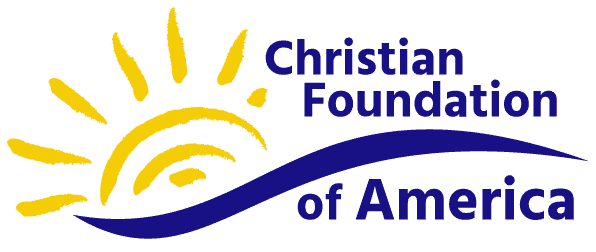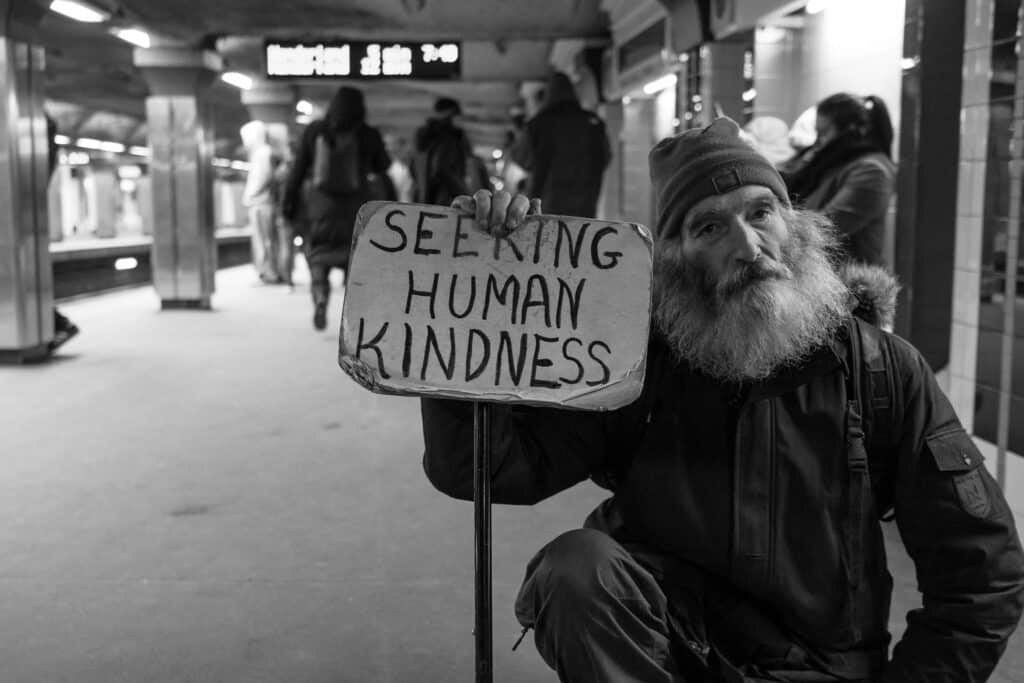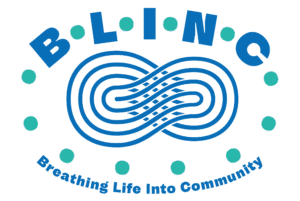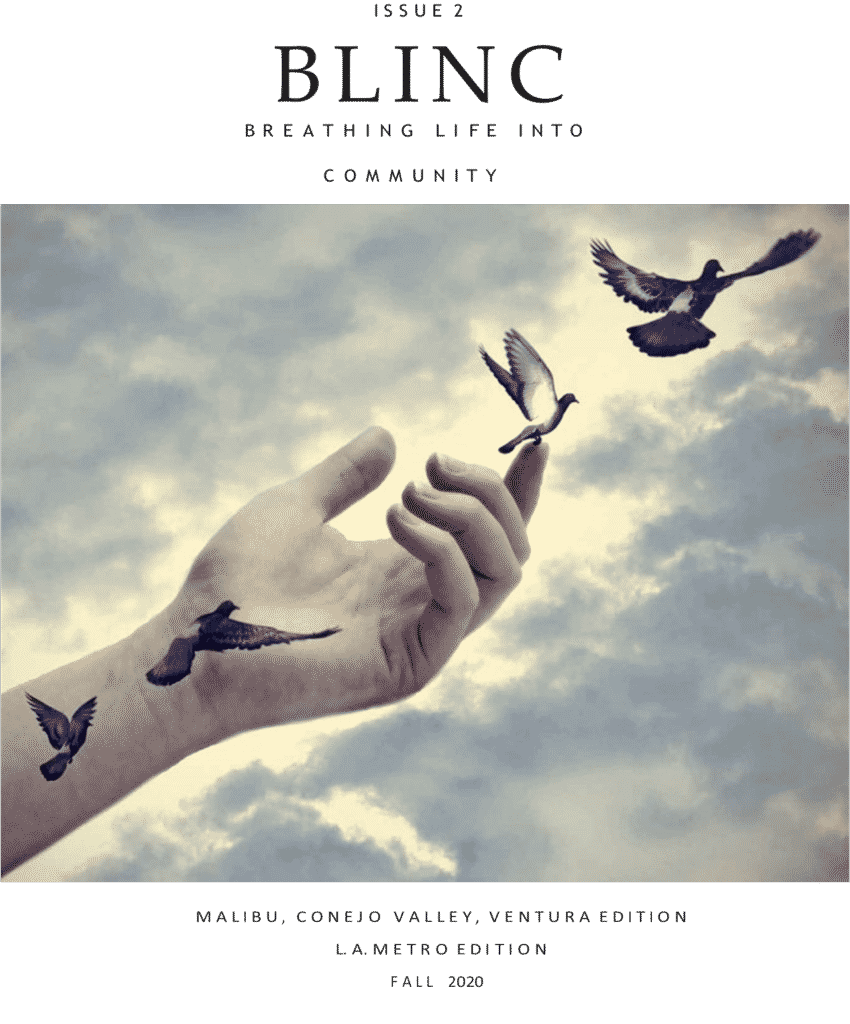BLINC Magazine
Issue 2 – Is BREATHING LIFE INTO COMMUNITY!
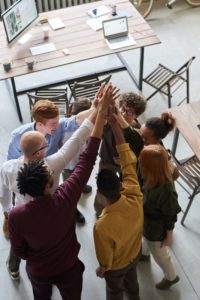
Current Projects – Creating Maximum Community Impact
CIRCLES PROJECT
BLINC helps Communities respond to hurt and concerns involving racial injustice. The CIRCLES project can help YOUR community join forces with another to deepen community ties, and find ways to help those in great need of loving care and tangible good. A $10,000 gift will provide the resources for national provider GENERIS to help your community understand the dynamics of your local “CIRCLE” radius, and as you identify another “CIRCLE” can help with the local community analysis through demographics, generosity culture dialogue and a set of ideas to help you get started. A $100,000 sponsorship can identify and jump start multiple CIRCLES in your region creating an even greater impact. We encourage you to find a local community cause and get involved!
Issue # 2 of BLINC is BREATHING LIFE INTO COMMUNITY!
In our second issue we continue to affirm how much “Community Matters” and honor each one affected by loss of community. You may be following the justice narrative sparked by the George Floyd tragedy. You’ll want to read “Reflections on Justice” and be inspired for such a time as this. Discover local business heroes who have designed their companies to actively support and give back to their communities in our Faces feature and our generous sponsors. Whether you relate more to Mr. Rodgers description of friendship, or how justice and generosity interconnect, or want to learn more about people in our community who are doing their part and giving back in our Faces feature or perhaps you enjoy poetry, art and photography. We are confident you’ll find this magazine of interest and enjoyable. Perhaps you’d like to have some copies to share and celebrate the generous goodness of Breathing Life Into Community.
This a community discussion, so jump on our Facebook page (click here) and tell us how you are creating community, what you see and voice your opinion too!
- Look though our first issue here: Blinc Magazine Fall-Winter 2019-20
- Issue #2, released September 9, 2020: get your copy here.
- Ask about sponsorship opportunities here: [email protected]
- Find BLINC on Facebook!
- Inquires for articles, sponsorships and advertising can be directed to [email protected].
Here’s a bit of a preview of what’s to come in September…
See a sampling of articles below.
Please Like, Share, Follow us and JOIN the conversation on Facebook, let’s do the work – BLINC – Breathing Life Into Community!
BLINC – ABOUT US
Breathing Life into Community™ is an initiative created to inspire our readers into action. As strongly reminded by George Floyd’s terrible experience, breath is indeed life. Without it, death is certain.
What do our communities most need? Active breathing – life infused into our daily living. That means speaking up, and using our voices. That means lending a hand where we can, and donating our skill set where others might benefit.
BLINC is our invitation to you, become involved. Be the solution. Leave a lasting legacy, starting today.
What are you waiting for? Don’t hold your breath!
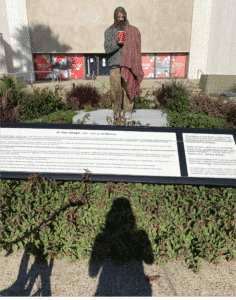
Community Matters
– In the image …
There is a statue in Santa Monica of a man who is 7’ tall, and occupies a wide corner of Wilshire Boulevard and 26th street. The statue has a name – “In the image” – and was conceived by Ed Massey and completed in 2001, the year terrorists decimated the Twin Towers, and the lives of the people in them and on the ground.
The statue, dedicated to the anonymous homeless, calls for a response through its quiet, gentle strength. Standing in its presence, it is impossible not to be confronted with one’s personal thoughts and private emotion for humankind. One looks into the face of abandonment, draws one’s eye over a figure carrying all they possess – a take-away cup, blanket and wearing a few disheveled clothes – and you’re left asking just as many questions of yourself as you are of eliciting empathy for another who is visibly suffering. What do you hear in that moment of silence, as you contemplate standing in another’s soleless shoes?
Replace the statue in your mind with one of the countless homeless we witness daily, living in makeshift tents under a freeway bridge, on the sidewalk, or curled up in a vacant store entrance, cold, unclean, unable to get up from the hard ground on which they fell. How do we respond? Are we afraid to look, to connect, terrified that it could trigger our own fears of being in the same desperate condition of lack, suffering, isolated darkness. Recognizing that, in our own ways, we might our selves actually be displaced. The homeless, tragically, have no place to hide.
The 2020 hindsight of this extraordinary year is that it is forcing each one of us to rewrite our comfortable thoughts. No longer the luxury of placing segments of life in appropriate boxes and hiding away those that don’t appeal. The deep social unrest that again has blistered the surface, the fight for justice for all that continues because it hasn’t been adequately addressed, the rapid and terrifying global reach of an invisible deadly virus, the pain and desperate loss of life amidst the trauma and chaos of a pandemic. Our connectedness to one another can no longer be in doubt or ignored.
So what can we do? Do what we can. On the scale that we can. And for the purpose that ignites our heart. Mr Rogers, in Its a Beautiful Day in the Neighbourhood, might call it a daily practice of contemplation, prayer, generosity of spirit, creative thought, and kindness. In the film he demonstrates the sign language for ‘friend’ as an interlocking of fingers, forming a lockable bond. We have our stories of brokenness, we carry pain we don’t need to – often for so many years it becomes the fabric of our identity – and we shut out love in case it exposes our vulnerability when it is exactly the healing salve that will save us. Our deep connectedness is the unbreakable bond of humankind.
The statue ‘In the image’, the inhumane terror of the 2001 attacks, the tragic loss of life of George Floyd and countless others, are clanging symbols to remind each one of us that life is a precious gift and it is our duty – and joy – to live with a sense of purpose to serve another. We are human beings, and to be a kind human is to be transformative. The invisible ripples pulsate far and wide and more powerfully than a deadly virus. A renowned transplant surgeon once reminded me, a kidney is pink. We are all the same on the inside. Colour of skin is an irrelevance. All lives matter, and especially those lives that have been cruelly and inhumanely oppressed. It is at such a time as this that we are called to unity, and to dismantle the metaphorical or physical barriers and walls we have built that cause the toxicity of division, hatred and misunderstanding. We are so much bigger together, and the more love there is, the more love there is!
Andrea Tennant
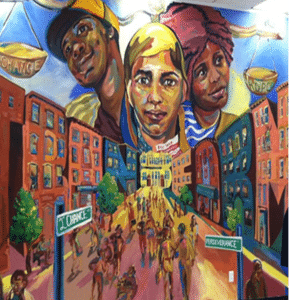
Generosity and Justice
Can we “Do-Over” 2020?
Oh- how we hear this! First COVID 19, Shutdowns and Disruptions, and the tragic death of Mr. George Floyd, rekindling the ugliness of Racial Injustices. 2020 will be carved deeply in history.
“Should we even try a Do-Over?”
The answer is NO, and NO! Here’s why!
Arguments to rationalize, defend, blame, explain, even erase- not helpful. There are seekers of perfection at every turn. If only it were possible to erase, to re-do, or simply not have “those people” or “that history” in the way.
I was in a conversation just yesterday, a very deep and thoughtful conversation with 2 friends, one white and one black, genuinely seeking to learn and understand past and present racial injustice issues in a loving manner, each with a unique story. One question came up over and over. “But what do we do about it?”
Humankind’s imperfection is inherent in our experiences, in all glory or horror, as the case may be. History matters, and it can teach, but that’s all. There is but one ultimate solution- and that is a forgiving, giving and loving effort today and tomorrow, doing our best. Only our forward acts of fairness, kindness, sharing and generosity, in community, can help cure injustice. They’re “For” “Giving”.
I urge deep reflection. If you’ve “worked hard and earned” success, consider what purpose your success serves in the pursuit of Justice. Many friends and neighbors are struggling, some for generations. Truth rests in a tangible, substantial giving nature so those least likely to access success are GIVEN pathways, resources, and true opportunity.
Generosity is essential to the pursuit of Justice. It takes hard work to change the future recognizing mistakes and misdeeds of the past. Generosity must persevere into the future. It’s not a transaction folks- Generosity is a character trait only present in action! Generosity requires we are for each other- that’s what Community means, and how Justice will flourish. It’s how we Breathe Life Into Community.
Katherine Saigeon is Executive Director of Christian Foundation of America
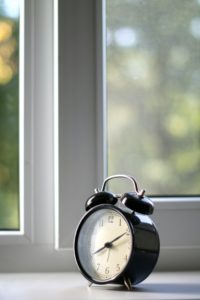
Reflections on Justice
… It’s time to do the work.
On July 20th I received in an email a prayer by Elizabeth Behrens titled A Prayer of Acknowledgement & Lament. It was, for all intents and purposes, the groaning of a saint over the pain being witnessed here on earth. Though I didn’t know it at the time, this prayer would become an important answer to the questions I had long been asking:
“what do we – as followers of Christ – do now? After months of violence, protests, hundreds of social media campaigns, and countless articles and livestreams, how can we practically respond to the long and hard question of racism; the social and cultural polarization over the use of face masks, the pending election that is projected to deepen our nation’s political divide even further?”
I now know Behrens’ prayer was the perfect balm for my pain and the beginning of a transformative journey to discover how we, the people of God and of goodwill, can begin to heal our communities and our nation. This letter is an attempt to share with you what I have discovered thus far.
We are living through one of the most difficult and painful times in modern history. Unlike the rest of the world, America has experienced not one, but two pandemics. The coronavirus is not only attacking our human and public health, it is exposing the structural and racial inequities that exist across our nation.
However, these last six months have not only found us vulnerable to a virus. They have exposed an insidious social ill that many in our country thought we had all but left behind. This virus of systemic racism has not just momentarily ravaged our nation’s health, it has devastated black and brown communities for centuries. In this moment, it is crystal clear that we need more than physical healing – we need spiritual and social healing even more.
Theodore Parker, a theologian and minister born in 1810, used his pulpit and platform to call for the abolition of slavery. In 1853 he penned a collection of sermons including one titled “Of Justice and the Conscience” that included figurative language about the arc of the moral universe:
I do not pretend to understand the moral universe, the arc is a long one, my eye reaches but little ways. I cannot calculate the curve and complete the figure by the experience of sight; I can divine it by conscience. But from what I see I am sure it bends towards justice.
But over 150 years later, many are asking if it is still possible to ‘bend the arc of history toward justice’ given what seems to be a now insurmountable feat. Yet, I believe it is no accident that the issues of racism, racial and income inequality, and social animus are being laid at the doorstep of the Church. Rather, it seems obvious that the work of parts of the church throughout history remains undone. For this reason, we should see this time not as a reckoning, but as an opportunity to lean into a calling left woefully incomplete. We must recognize that a stain that took 400 years to fully set racial injustice into our country’s DNA will require more than a century to remove. And it is up to each us to not just recognize that such a stain exists, but to take action.
And so, it’s time to do the work.
My hunch is that the answer to healing the scourge of racism begins with empathy, and with our return to conversing civilly with those at the center of the crisis – in particular the people who find themselves on the receiving end of it. For it is the power of empathy that brings us together and exposes us to the ideas and perspectives we naturally self-select out of. Empathy also helps us see the spaces where, as humans, are far more alike than different.
Yet, I believe this issue of racial injustice is too important to wait for government, media or even our tried and tested institutions to lead. What begins to heal us is an empathic pursuit of justice, not just a legislative one. It is incumbent upon each one of us to listen, to learn and to discover how we can individually step into the issues that so often divide us, in particular the ones that regularly dismantle justice and promote conflict. As people of God and good will, it our job to bring reconciliation and healing in its place. We can each plant seeds that lead to a future worth having and the civil society our current age demands.
This moment is also an opportunity to begin new conversations in our families, in communities and across our nation. It is an opportunity to talk with one another in an effort to answer the hard, yet important questions of our time. We must learn to relate or dare I say, love one another across difference and find ways to bridge divides and create new language. In fact, we might just need to adopt a new meaning of community itself. Even more, we have an opportunity to learn to hold to our convictions AND have passionate disagreements and arise more committed to one another – regardless of race or creed – as a result.
As president of Ideos, I come to this moment with great optimism, recognizing that lasting change often rises from moments of crisis AND moments of great pain. As someone who wakes up each day with the role of finding solutions to the polarizing and conflict laden issues of our time, I have to.
But make no mistake, the roots of racial injustice are long and deep, and their unearthing will be a lifelong process. Yet, as Christians, the work to overcome injustice and division is embedded in our most sacred of tomes. Micah 6:8 proclaims that we are to “love mercy, do justice and walk humbly with our God.” Thousands of years ago, the people of Jesus were given these marching orders. They still call to us today. If you are not yet ready, then I commend to you the following poem: A Litany for Those not Ready for Healing. However, if like me you are tired of seeing injustice and hatred flourish, then rise. It is time to do the work.
Christy Vines, President, Ideos Institute
Generosity and Justice
A Litany for Those not Ready for Healing
Let us not rush to the language of healing, before understanding the fullness of the injury and the depth of the wound.
Let us not rush to offer a band-aid, when the gaping wound requires surgery and complete reconstruction.
Let us not offer false equivalencies, thereby diminishing the particular pain being felt in a particular circumstance in a particular historical moment.
Let us not speak of reconciliation without speaking of reparations and restoration, or how we can repair the breach and how we can restore the loss.
Let us not rush past the loss of this mother’s child, this father’s child…someone’s beloved son.
Let us not value property over people; let us not protect material objects while human lives hang in the balance.
Let us not value a false peace over a righteous justice.
Let us not be afraid to sit with the ugliness, the messiness, and the pain that is life
in community together.
Let us not offer clichés to the grieving, those whose hearts are being torn asunder.
Instead…
Let us mourn black and brown men and women, those killed extrajudicially every 28 hours.
Let us lament the loss of a teenager, dead at the hands of a police officer who described
him as a demon.
Let us weep at a criminal justice system, which is neither blind nor just.
Let us call for the mourning men and the wailing women, those willing to rend their garments of privilege and ease and sit in the ashes of this nation’s original sin.
Let us be silent when we don’t know what to say.
Let us be humble and listen to the pain, rage, and grief pouring from the lips of our neighbors and friends.
Let us decrease, so that our brothers and sisters who live on the underside of history may increase.
Let us pray with our eyes open and our feet firmly planted on the ground
Let us listen to the shattering glass and let us smell the purifying fires, for it is the language of the unheard.
God, in your mercy…
Show me my own complicity in injustice.
Convict me for my indifference.
Forgive me when I have remained silent.
Equip me with a zeal for righteousness.
– Dr Yolanda Pierce
